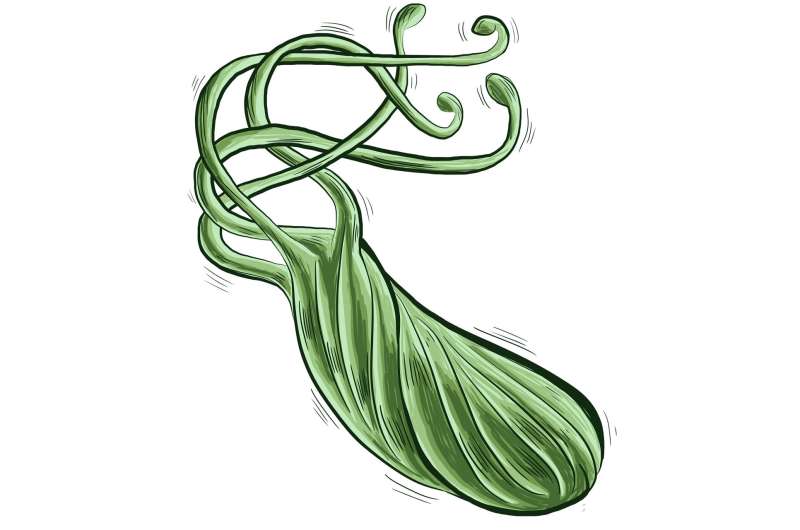This article has been reviewed according to Science X's editorial process and policies. Editors have highlighted the following attributes while ensuring the content's credibility:
fact-checked
peer-reviewed publication
trusted source
proofread
New guideline for Helicobacter pylori includes change to primary treatment recommendation

The American Journal of Gastroenterology has published a new guideline on the treatment of Helicobacter pylori (H. pylori) infection.
The corresponding author on the guideline is William D. Chey, M.D., chief of the Division of Gastroenterology and Hepatology at Michigan.
H. pylori is a bacterium that infects over half the people in the world, though most are asymptomatic. It can cause dyspepsia, peptic ulcer disease and gastric cancer. This latest clinical practice guideline notes that its prevalence in North America is decreasing, but it still infects 30-40% of the population.
A previous guideline was published in 2017. It had maintained the recommendation of a proton pump inhibitor-clarithromycin triple therapy as the primary treatment option.
In the new guideline, the number one recommendation for treatment-naïve patients is bismuth quadruple therapy. That treatment typically includes a PPI, tetracycline, bismuth and nitroimidazole for 14 days.
"We were already recommending that health care providers move away from PPI triple therapy in 2017 because of increasing problems with chloromycetin resistance among H. pylori strains in the United States," Chey said.
"Despite that recommendation, PPI triple therapy still dominates first-line therapy prescriptions for H. pylori patients in the United States. In this newest iteration of the guideline, we are very clear to say that in essentially all circumstances you should not be prescribing PPI triple therapy, and you should instead be using bismuth quadruple therapy or one of the other suggested treatment options."
The guideline makes 12 total treatment suggestions for patients in a variety of different situations. The number two recommendation for treatment-naïve patients—after bismuth quadruple therapy—is rifabutin triple therapy (a PPI, rifabutin and amoxicillin.) A third option consists of a new, highly potent drug called vonoprazan, combined with the antibiotic amoxicillin, that blocks stomach acid production.
Besides the move away from PPI triple therapy, another change from the 2017 guideline is the discussion of increasingly available molecular testing for antibiotic susceptibility.
"Molecular testing really opens the door to the possibility of more liberally utilizing antibiotic sensitivity testing as a mechanism of tailoring therapy to the antibiotics that H. pylori or a person infected with H. pylori is sensitive to," Chey said.
The guideline also outlines future research priorities, such as identifying which individuals would most benefit from H. pylori testing to prevent gastric cancer and evaluating newly FDA-approved regimens for persistent infections.
More information: William D. Chey et al, ACG Clinical Guideline: Treatment of Helicobacter pylori Infection, The American Journal of Gastroenterology (2024). DOI: 10.14309/ajg.0000000000002968




















